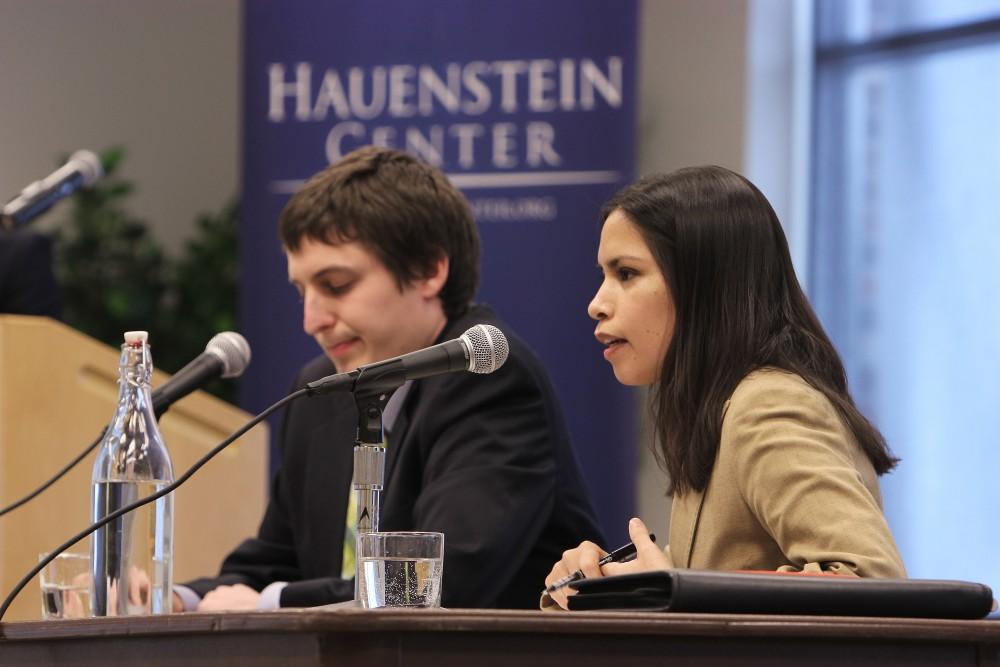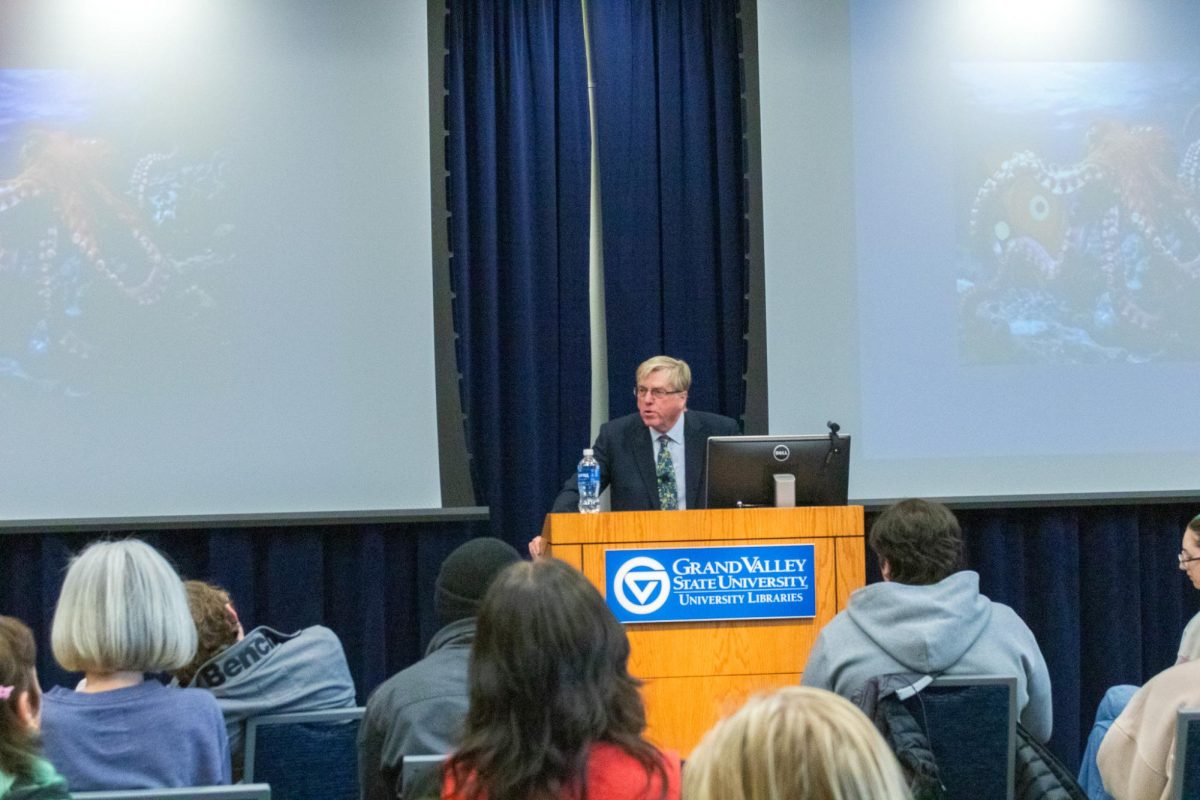The debate continues for minimum wage

GVL / Laine Girard Jarrett Skorup & Yannet Lathrop debate about whether we should raise, lower, maintain, or abolish the minimum wage.
Jan 15, 2014
Many students at Grand Valley State University have worked at a minimum wage job at least once. Many have probably wished for a raise while dealing with angry customers, working the hamburger line or mopping the floor.
On Tuesday, the Hauenstein Center for Presidential Studies hosted its second Coffee House Debate of the school year, “Should Michigan raise the minimum wage?” The forum featured Jarrett Skorup from the Mackinac Center for Public Policy and Yannet Lathrop from the Michigan League for Public Policy.
Minimum wage was last raised in 2008 when it went up to $7.40 an hour. Since then, the prices of food and consumer goods have gone up each year.
Lathrop started the debate arguing for an increase in minimum wage.
“Corporate profits have shot up and shattered historic records, productivity has increased, but the paychecks of low-wage workers has shrunk in real terms,” she said. “As a society we can and must do good by our low-wage workers. We must reward their hard work and give them a much needed and much deserved pay increase.”
The Michigan League for Public Policy estimated in 2011 that to afford basic necessities without having to rely on public assistance, an individual would need a wage of $10.08 an hour.
“It’s no wonder then that a recent study found that 73 percent of low-wage workers or their families are enrolled in public assistance,” Lathrop said. “If the current minimum wage fails to boost even a childless individual above poverty, is it a fair wage?”
Many people believe that the majority of workers earning minimum wage are teenagers hoping to earn some pocket change, Lathrop said. However, in Michigan, 85 percent of workers who earn at or just above minimum wage are 20 years of age or older. Nationally there are more workers who are 55 or older earning minimum wage than teenagers.
On the other side of the issue, Skorup listed two main reasons to be against minimum wage laws. His first is based on economics.
“Among the most basic laws of economics is if you make something more expensive, you will have less of it,” Skorup said. “Minimum wage laws are making hiring someone more expensive, and thus you’ll get less of it.”
Skorup said raising minimum wage will mean fewer lower-skilled workers, higher prices, fewer bonuses and shorter break times during the day. In addition, some businesses might require employees to start purchasing their equipment and uniforms.
Skorup’s second reason opposing a minimum wage is morally based.
“If two people come to an agreement affecting only themselves, what business is it of the government to tell them they can’t do so?” he said.
Skorup noted that most individuals must start at a minimum wage job or even an unpaid internship, to gain experience before moving onto a higher earning career. This can disproportionately affect lower-skilled workers and minority workers.
“Everyone starts out somewhere at a job, but politicians can make it more expensive to give someone that start,” Skorup said. “If the government says you have to pay someone say $15 an hour, which is a popular minimum called for nowadays, and the employer does not believe the person is worth that amount of money, then they will not hire them. If they have someone who they believe is worth less than that wage, they will fire them.”
Students can find other events sponsored by the Hauenstein Center at www.hauensteincenter.org/events-calendar.






















